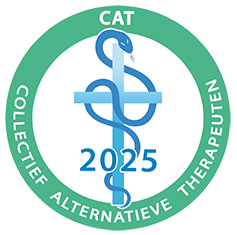One of our deepest longings is for true intimacy. It is also one of our greatest fears.
The fear of rejection for who we truly are makes us hide behind a mask and living in pretentions. Only when we learn to love ourselves first, can we invite real intimacy with others to happen in our lives.
Learning the difference between relating and a relationship
“It is because of the pain of love, millions of people live a loveless life. They too suffer, and their suffering is futile. To suffer in love is not to suffer in vain. To suffer in love is creative; it takes you to higher levels of consciousness. To suffer without love is utterly a waste; it leads you nowhere, it keeps you moving in the same vicious circle.” Osho
We learn as children that we are only lovable when we behave in certain ways. Often love is used as an exchange; I only love you when you do what I want you to do. Consequently, we start to hide our true feelings, repress our spontaneous response, and judging our natural self. We learn that being false pays off and we start to live our lives based on lies. Over time we forget how to be open and real. Painfully disconnected from ourselves, we can no longer allow others to come close to us.
Feeling disconnected we confuse aloneness – a state of feeling oneness with the whole – with loneliness. We become demanding on the other for our wellbeing and feeling loved. Instead of relating we create a relationship with set rules entrenched in the same model of substituting an act for love.
We tend to set our boundaries based on the painful intimate experiences we had in the past. We build a wall around us to prevent others coming too close to us. Thus, believing we will not get hurt like this, we live isolated in our well build prison.
“The person who has not known the other in deep love, in intense passion, in utter ecstasy, will not be able to know who he is, because he will not have the mirror to see his own reflection.
Relationship is a mirror, and the purer the love is, the higher the love is, the better the mirror, the cleaner the mirror. But the higher love needs that you should be open. The higher love needs you to be vulnerable. You have to drop your armor; that is painful. You have not to be constantly on guard. You have to drop the calculating mind. You have to risk. You have to live dangerously. The other can hurt you; that is the fear in being vulnerable. The other can reject you; that is the fear in being in love.” Osho
WHY ATTEND THIS COURSE?
In a safe and contained group setting we will explore our wounds, misunderstandings and false believes around intimacy. When we experience that everybody is afraid of intimacy, it invites us to step away from behind our false identity and protective wall.
Realizing that we are all vulnerable and sensitive human beings who were not seen in our lovability just for who we are, makes us less judgmental towards ourselves and others. Learning to love ourselves first will transform our love to an – open hand gesture – instead of clinging or being demanding on others. The other will feel welcomed instead to share in our overflowing heart space and we will mutually acknowledge that love arises from this abundance.
“Love is an open sky. To be in love is to be on the wing. But certainly, the unbounded sky creates fear.” Osho
Opening to Intimacy invites you to take a risk to come out of your comfort zone and playfully meet others just for the joy and fun of getting to know oneself and the other person.
“Love is painful because it creates the way for bliss. Love is painful because it transforms; love is mutation. Each transformation is going to be painful because the old has to be left for the new.” Osho
WHAT WILL I LEARN?
- To understand that real intimacy starts with intimately relating with oneself first
- To learn how to lovingly take care of what you hide inside you
- To recognize your parental and social conditioning around intimacy
- To understand how we all have an Inner Man and an Inner Woman
- To recognize and respect your own physical boundaries
- To understand the difference between loneliness and aloneness
- That in meditation we experience the space of at-oneness as the ultimate intimacy
WHAT IS INCLUDED?
- A live 3-day course. Friday, Saturday, and Sunday
- Friday: approximately 10 hours with breaks including OSHO Kundalini Meditation
- Saturday and Sunday: approximately 12 hours with breaks including OSHO Dynamic and OSHO Kundalini Meditations
- Various techniques to explore your issues related to intimacy
- Individual introspective exercises
- Group processes and group sharing
- Osho quotes and insights about our misunderstandings around intimacy
- Q&A sessions with facilitator
“Love creates problems. You can avoid those problems by avoiding love. But those are very essential problems! They have to be faced, encountered; they have to be lived and gone through and gone beyond. And to go beyond, the way is through. Love is the only real thing worth doing. All else is secondary. If it helps love, it is good. All else is just a means, love is the end. So whatsoever the pain, go into love.
“If you don’t go into love, as many people have decided, then you are stuck with yourself.
“Hence people are interested in sex, because sex is not risky. It is momentary, you don’t get involved. Love is involvement; it is commitment. It is not momentary. Once it takes roots, it can be forever. It can be a lifelong involvement. Love needs intimacy, and only when you are intimate does the other become a mirror. When you meet sexually with a woman or a man, you have not met at all; in fact, you avoided the soul of the other person. You just used the body and escaped, and the other used your body and escaped. You never became intimate enough to reveal each other’s original faces.” Osho
When & Where will be updated as soon as this course is scheduled.
Affiliated with: CAT – Collective Alternative Therapists
Complaint and disciplinary law
I am registered as a CAT (Collective Alternative Therapists) therapist under Wkkgz-right of complaint and disciplinary law in the dispute resolution body GAT (Disputes Alternative Therapists). GAT is a national recognized and fully independent Wkkgz disputes Committee in the Netherlands, however for complaints from abroad there is until further notice no complaint procedure.
New European privacy law
The General Data Protection Regulation (AVG) applies as of 25 May 2018. This is a new European privacy law. As a result, privacy is the same in all countries of the EU. Now the member states still have their own national laws.
The General Data Protection Regulation (AVG) thus replaces the old Personal Data Protection Act (Wbp), which prescribes that healthcare providers properly secure medical records. For example, they must ensure that only authorized persons have access to a patient’s file.
The AVG lists a number of mandatory measures that a therapist has to meet because they record data in client-files.
YOUR PRIVACY
To support a good treatment, it is necessary that I, as your therapist, make notes and keep them in a encrypted digital file. This is also a statutory duty imposed by the Medical Treatment Contracts Act (WGBO).
Storage period
These details in the client file, as required by the law on the treatment agreement (WGBO), are retained for 15 years.
Patients’ rights
The rights of patients with their medical records are secured partly in the WGBO, and partly in the Wbp. Patients have the right to view their medical records and to request correction, addition or destruction of their files.
What exactly is saved
Your file contains notes about your personal details, health status and short notes of the date and course of the treatments performed. For courses this consists of the questionnaire and any additional questions.
In the file, data are also included, if necessary, that are necessary for your treatment and that I have requested, after your explicit consent, from a care provider, e.g. from your (other) therapist or general practitioner.
Who sees what
As your attending therapist, I have sole access to the data in your file. I have a legal duty of confidentiality (professional secrecy).
When a course is organized abroad, and translation is necessary, the organizer and translator have access to the data and they work under a signed mutual duty of confidentiality.
The data from your file can also be used for the following purposes:
1. To inform other health care providers, for example if the therapy has been completed or with a referral to another therapist. This only happens with your explicit permission.
2. For the anonymized use during peer review.
3. A limited part of the data from your file can be used for the financial administration, so that I can draw up an invoice.
4. The invoice is, if necessary, consulted with my tax advisor for making the annual tax return and any tax inspection.
If I want to use your data for another reason, I will first inform you and ask your permission explicitly.


